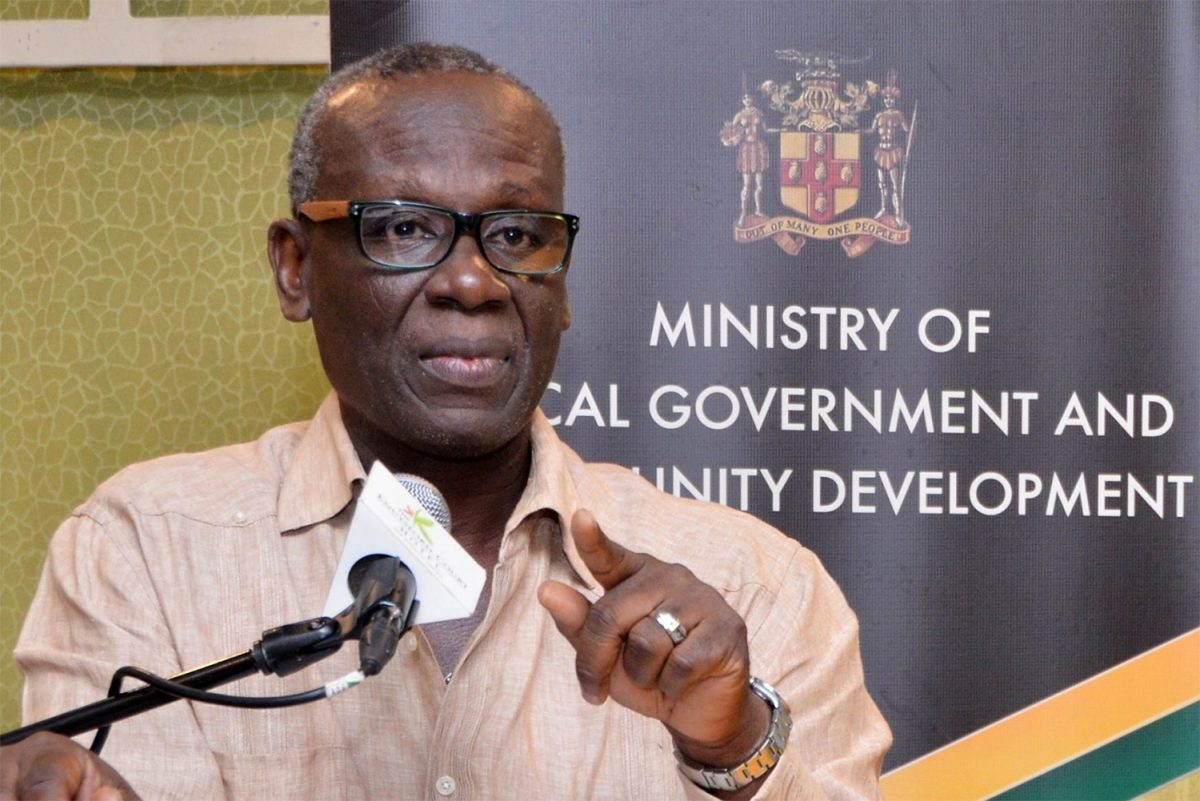Local Government Minister Supports BCJ Ban: “Our Music Once Had A Message Of Hope”

Local Government and Rural Development Minister Desmond McKenzie has thrown his support behind the Broadcasting Commission of Jamaica’s directive to rid the airwaves of content that promotes and glorifies illegal activities, such as gunslinging, scamming, and “molly popping.”
According to the Minister, he is encouraging young people to embrace music that encourages positive values, rather than glorifies illegal activities.
The Minister, who was speaking at the launch of the Ministry’s Cross-Island Run, at the Portmore Municipal Corporation in St. Catherine, affirmed that the Government is not violating citizens’ right to freedom of expression, but that the content of music of the new music was so morbid that, he feels embarrassed for the creators.
“Our music once had a message of hope. Our music use to inspire. Nowadays I don’t even know what the number one song in Jamaica is, because there are times when the lyrics is not something that you would want to encourage your enemy to sing,” the Minister, who is also Member of Parliament for West Kingston said.
The Minister said that the artists, who are penning and voicing negative lyrics, have the capacity to write positive music, and must be encouraged to do so, as the country must stand for what is morally right.
“We must talk about values… what values we are trying to instill in the country. Those persons who have the ability to write negative lyrics, also have the ability to write positive lyrics. So, we have to take a stand as a country,” McKenzie said.
“What we are saying is that whatever expression you are [voicing] in the public domain must be something that is edifying… something that is uplifting,” he added.
While reflecting on late popular Reggae artists such as Desmond Dekker, Dennis Brown, Alton Ellis and Bob Marley, McKenzie pointed out that their music reflected the happenings in the country without vulgarity and crassness.
“It tells you that we have the ability to do what is right. Let us use the decision that was taken by the Broadcasting Commission to look at ourselves and to make the right decisions,” the Minister said.
McKenzie’s comments came days after Dancehall icon Bounty Killer, came out in defence of the Broadcasting Commission of Jamaica’s recent directive aimed at prohibiting wayward radio disc jockeys from continuing to breaking national broadcast rules.
The Warlord had pointed out that violent songs, including many of his own, ought not to be played on public radio. He had also said that disobedient radio disc jockeys were the ones bringing free-to-air radio in disrepute, as the artistes themselves, do not record morbid songs with the expectation that they will be played on public radio, as they do not meet the long-held family-friendly format, but rather, voice them for “the streets”.
Bounty had also explained to persons who did not comprehend the BCJ’s statements about songs unfit for airplay, that the directive had nothing to do with Jamaica’s anti-crime measures, as was being bandied about.
Instead, the Gun Ready artiste made it clear that the Commission was simply carrying out its mandate by reinforcing the fact that certain types of songs have never belonged on public radio and that radio is being governed by a commission which had the right to decide what was deemed fit for airplay.
Two weeks ago, 13 years after the BCJ ordered radio stations that were playing violent musical content, on the national airwaves to quit, the agency issued another similar directive, which added the prohibition of the party drug molly, and lotto scamming to the mix.
The directive which came under the signature of Executive Director Cordell Green, was similar to one issued in February 2009 by then BCJ chairman Dr Hopeton Dunn, prohibiting the “transmission of any recording, live song or music which promotes or glorifies any offence such as murder, rape mob violence and other offences such as arson”.
Green, while arguing that the “airwaves have to be kept free of harmful content given the important role traditional media still plays as agents of socialisation” said that “the use of the public airwaves to broadcast songs that promote/glorify illegal activity could give the wrong impression that criminality is an accepted feature of Jamaican culture and society”.
In a subsequent interview, Green had said that there had been a systemic violation of the rules by many disc jockeys employed by some radio stations, who push unwholesome music, while artists who record clean, wholesome content are not given the time of day.
